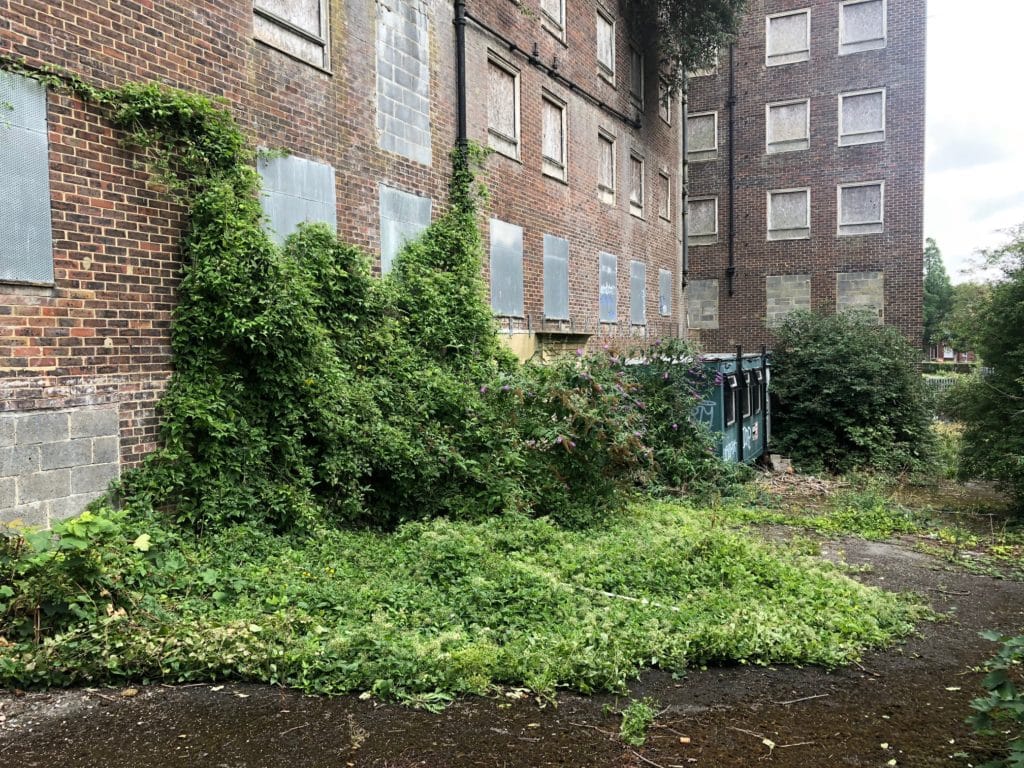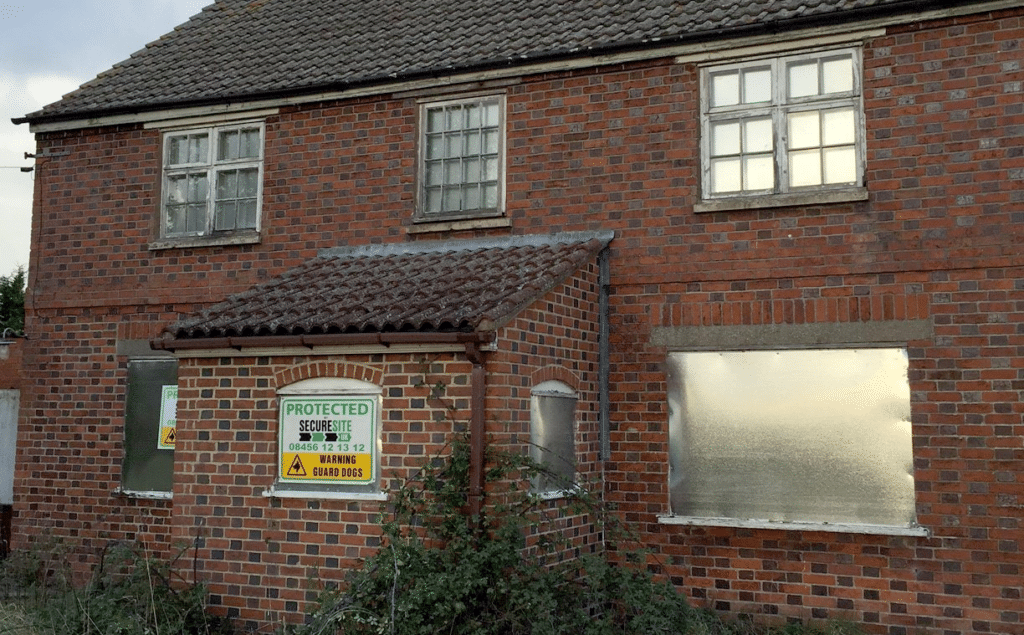Government figures reported a total of 268,385 homes remaining empty for over 6 months in 2020, so it’s easy to see how common it is for properties to sit empty for extended periods of time.
During these times, one slip-up in maintenance can invalidate your insurance and potentially jeopardise your coverage in the event of crime or damage.
As a Landlord or Property Manager, there’s never a better time to refresh your memory and be extra prepared. This blog will cover the reasons why vacant property insurance is so important, including the requirements to make sure it remains valid when you need it most.
Why Is Vacant Property Insurance Required?
Once a property becomes vacant, it’s susceptible to the threats that vacant properties commonly face. As a result of these additional risks, regular property insurance becomes void and will not successfully cover damages if they occur – generating an immediate need for suitable coverage.
While vacant property insurance can easily be arranged, it requires additional and ongoing attention to maintain its validity. Most often, insurance companies require this to be done through routine inspections of the property. Such inspections provide proof that your vacant property is compliant and eligible for the necessary coverage against the increased risk of damage.
What Threats Do Vacant Properties Need Insuring Against?
Empty properties are more vulnerable to accidental issues such as fires, flooding, subsidence, and storm damage. As properties are left unwatched, small issues can easily go unnoticed and gradually develop into major damage. The repairs to which can be costly and time consuming to resolve.
Vacant properties are also common targets for criminal activity such as vandalism, arson and squatters.
In the event of squatters moving in, resolution must be achieved through legally authorised enforcement services. Such action can be time consuming, only to then receive the property back in an unacceptable state for use. Alongside the added stress and loss of income, it is unfortunately common for such damage not to be covered by insurance companies as the correct maintenance was not carried out.
How Can Vacant Property Inspections Validate Insurance?
Vacant property inspections are professionally carried out, checking all vulnerable and common areas for current and potential issues. Not only are such inspections often a legal requirement, but they act as an excellent method of ensuring that your vacant property is being professionally watched, resulting in an effective deterrent from criminal activity.
These actions provide reasonable proof to your insurance company that the property is being actively maintained and that the occurrence of damage is not a result of owner neglect.
Who Carries Out Vacant Property Inspections?
Vacant property service providers have set practices in place for this very scenario. The best providers will have a tried and tested checklist, created to meet the requirements of the UK’s largest underwriters such as AXA, HSBC, Willis and Insolvency Risk Services. These checklists should be carried out routinely to ensure any new risks are mitigated early on.
What Do Void Property Inspection Checklists Include?
This checklist is a good example of the types of procedures a professional Property Inspector should follow when inspecting a vacant property:
- The first check is to determine whether the property requires securing against the threat of illegal entry. This will immediately determine whether any urgent attention is required to prevent criminal trespass and damage.
- The inspection will achieve this by investigating whether all external doors and windows are secure to limit the risk of criminal access.
- When a property becomes vacant, property inspectors will commonly recommend changing all locks on the property within 7 days. This is to assist with the external security of the property.
- Replacing or boarding-up broken windows is an effective way to secure vacant properties and displays that your property as being actively managed. This is a great sign to your insurance company that you are taking the necessary precautions to mitigate the risk of damages.
- Sealing letterboxes is another recommendation that can drastically mitigate criminal damage from causes such as arson. Vacant properties are common targets for arsonists, with many occurrences utilising vulnerable openings, such as letterboxes, to start fires.
- Property Inspectors should carry out internal assessments, such as the need to remove any waste materials. Waste materials are often hazardous and combustible which can either cause damage itself or aid in the start of a fire.
- Professional decommissioning is commonly recommended for vacant properties. This includes shutting off the gas supply to the building. In doing so, you will once again be removing an additional source of fuel that can initiate or exacerbate a fire.
- Such decommissioning also involves shutting off and draining down the water supply to the property (unless a sprinkler system is installed). This reduces the property’s attractiveness for criminal activity such as cannabis farming, squatters, and accidental damage such as leaks.
- The final element of decommissioning requires shutting off the electricity supply (unless this is required for viewings or alarms). Vacant properties are often overrun by the likes of squatters and cannabis farmers. A lack of electricity supply can deter criminals from your property.
- Checklists such as this are recommended to be completed on the property both internally and externally every 7 days. This constant assessment will not only show that the property is being actively watched but will ensure that any threats are located and addressed early on.
- Property Inspectors should log all visits with date, time and identity of inspector for reasonable proof to be provided that these inspections have taken place.
- Upon inspecting, if any breaches are located, the Landlord or managing agent should be contacted, and recommended suitable actions, in order to rectify any problem immediately.
Problems Found: What Happens Next?
Once vacant properties are inspected, it is not uncommon for issues to be raised. This is not bad news as it means that you can be made aware of the areas that require securing and lessen the risk of potential damage occurring. In the unfortunate situation that damage does occur, your property will be insured as you have taken the necessary steps to ensure its validity.
Recommended vacant property security services include:
- Short notice security guards: When vulnerable access points are located, or valuable assets remain on site, guards are an excellent way to urgently install physical security on site.
- Steel security windows and doors: Broken windows or vulnerable doors must be secured to limit potential access for criminals. Steel security doors stop unauthorised access whilst allowing for authorised viewing access to remain functional. Perforated steel window screens are also a great solution and provide effective security whilst allowing light in to aid viewings.
- Monitored CCTV: Acting as an effective deterrent, 24/7 monitored surveillance ensures that the property is always watched and action can be taken at the first sign of any threat.
- Decommissioning services: Cutting off external utilities to the property as a way of reducing attractiveness to criminals and reducing the risk of fault caused fires.
- Greenspace management: Vacant properties often appear derelict due to overgrown foliage and green spaces. Management of this helps to deter criminals as the property appears to be active and well looked-after.
- Mobile patrols: Acting as another solution when deterring criminals, mobile patrols enable vacant properties to remain monitored by security staff.
Conclusion
Regular property inspections are essential and should start as soon as your property becomes vacant. Not only do inspections ensure your property is eligible for its required insurance coverage, but the presence of active and professional monitoring ensures that any potential threats are spotted early-on and the safety and security of your property is maintained.
Get in touch today to speak to a vacant property security expert about your own unique requirements.









